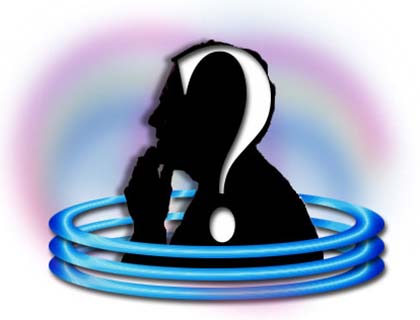“A fisherman from Wuling sailed upstream a river and came across a beautiful blossoming peach grove and lush green fields covered with blossom petals. Entranced by the beauty, he continued upstream. When he reached the end of the river, he stumbled onto a small grotto. Though narrow at first, he was able to squeeze through the passage and discovered an ethereal utopia, where the people led an ideal existence in harmony with nature. He saw a vast expanse of fertile lands, clear ponds, mulberry trees, bamboo groves, and the like with a community of people of all ages and houses in neat rows. The people explained that their ancestors escaped to this place during the civil unrest of the Qin Dynasty and they themselves had not left since or had contact with anyone from the outside. They had not even heard of the later dynasties of bygone times or the then-current Jin Dynasty.”
In many cultures, societies, and religions, there is some myth or memory of a distant past when humankind lived in a primitive and simple state, but at the same time one of perfect happiness and fulfillment. In those days, the various myths tell us, there was an instinctive harmony between humanity and nature. People’s needs were few and their desires limited. Both were easily satisfied by the abundance provided by nature. Accordingly, there were no motives whatsoever for war or oppression. Nor was there any need for hard and painful work. Humans were simple and pious, and felt themselves close to the gods. According to one anthropological theory, hunter-gatherers were the original affluent society.
Utopian fiction depicts a future in which humanity has reached a state of balance and peace, and where all life is valued and maintained. There is no more suffering and injustice, no more ignorance and violence. We have reached our full potential. The overarching message of utopian stories is one of hope and faith in humanity. Utopias remind us of our inherent instinct to crave peace, to regenerate and to evolve past our short-comings.
Utopia is a perfect society that undergoes continual improvement to achieve “the highest aggregate satisfaction level” for the most people. Utopian society also provides freedom for all. Everybody has different needs and different concepts of Utopia. Utopia therefore provides different governments and conditions so that all can live in a world that’s perfect for themselves. One man’s heaven may be another man’s hell. A utopian society would allow a man to move from a society that is his hell to a society that is his heaven.
In Utopia, one size does not fit all. Each man can move to a place that gives him what he wants and needs. One man might prefer to live in a billionaire’s mansion as a slave or servant. Another man might rather live in a dormitory or barracks and live in total freedom from subjugation, suppression and government.
Plato’s Republic was a fictional society as he thought that was in this form of society, humans would work together more “efficiently”. Firstly, he believed that there should be constant equality for all people of the State. However, he then talks about dividing all people into three classes: The Common People, the Soldiers who I understand are the guards, and protectors of the Guardians, who held the entire political power, made all the choices, and all had to be philosophers with the exact same understanding and viewpoints of Plato.
First of all, I think Plato had already contradicted himself by dividing the people in the first place – if everyone is to be equal then why should anyone be made to have differences? He explains that Guardians’ power is hereditary, but if a child isn’t a worthy philosopher or thinker, they can be demoted and placed into either the Soldiers or the common people, and someone with efficient enough intelligence can be promoted and become a Guardian. I think that even using the words ‘promoted’ and ‘demoted’ show a hierarchy within the classes – saying that one is better or has more prestige than the others. He also says that these ‘Guardians’ will all be philosophers that think exactly the same as him. However, for someone to be a philosopher they have to have their own thoughts and expand on them, not simply copy and repeat someone else’s ideas.
To enforce this idea of classes, Plato would integrate the ‘Myth of the Metals’. He writes that governments need to lie to keep their people happy, and so they would use this myth of fate. It says that when every man is born, God gives them a metal. To the people destined to be Guardians, he gives gold, to the soldiers he gives silver, and to the workers he gives iron and brass. This meant that the people of the state would not complain of or question their place in society because it was assigned to them by God – the one true power.
Considering all these, utopia is no more than an imaginary world. Currently, I daresay that we live in a dystopian world – where political exploitation, moral corruption, modern slavery, murderous acts, etc abound. We are mired in great challenges and one usually struggles just to survive the dangers threatening their life and beliefs.

